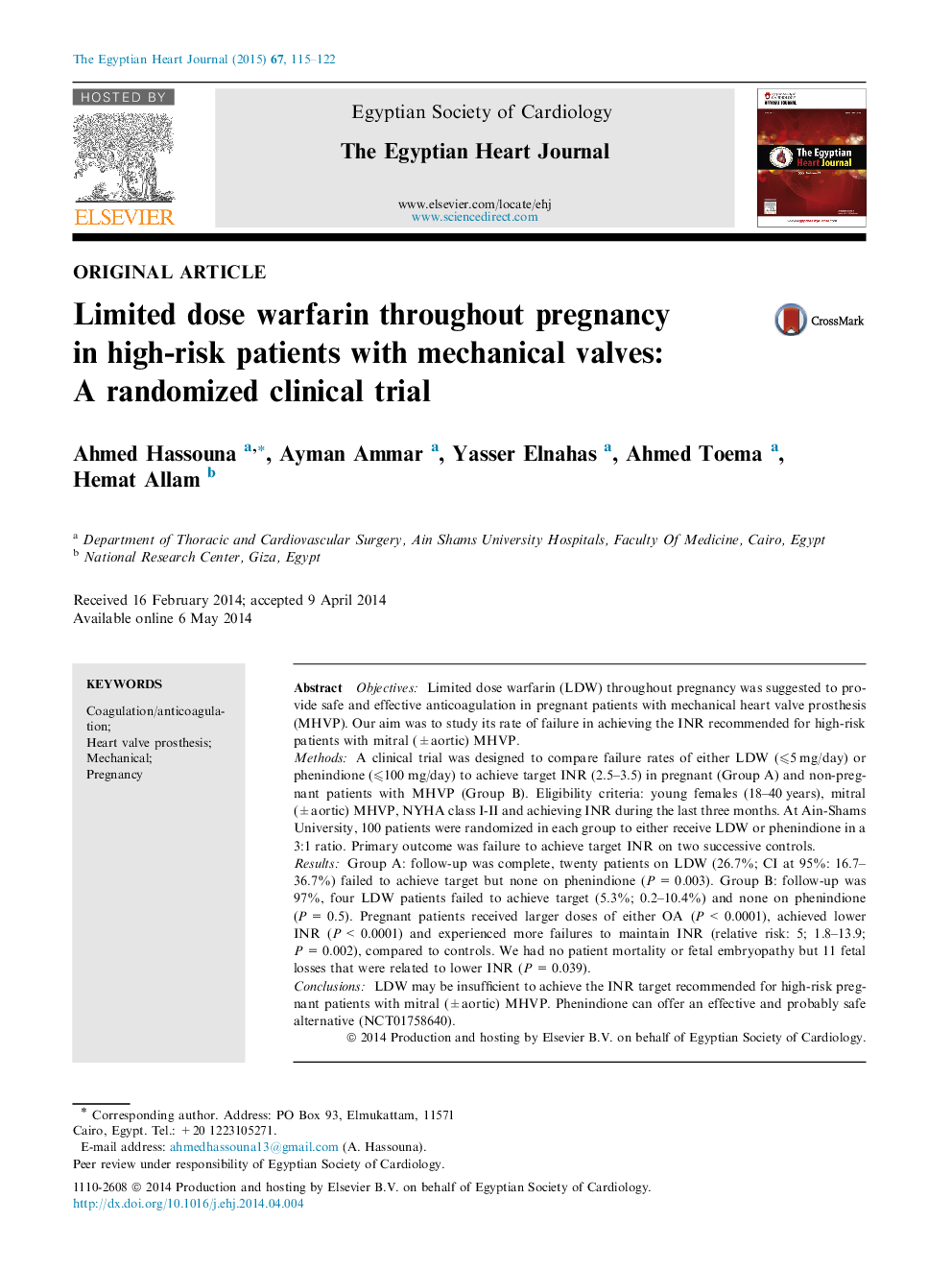| Article ID | Journal | Published Year | Pages | File Type |
|---|---|---|---|---|
| 2910559 | The Egyptian Heart Journal | 2015 | 8 Pages |
ObjectivesLimited dose warfarin (LDW) throughout pregnancy was suggested to provide safe and effective anticoagulation in pregnant patients with mechanical heart valve prosthesis (MHVP). Our aim was to study its rate of failure in achieving the INR recommended for high-risk patients with mitral (±aortic) MHVP.MethodsA clinical trial was designed to compare failure rates of either LDW (⩽5 mg/day) or phenindione (⩽100 mg/day) to achieve target INR (2.5–3.5) in pregnant (Group A) and non-pregnant patients with MHVP (Group B). Eligibility criteria: young females (18–40 years), mitral (±aortic) MHVP, NYHA class I-II and achieving INR during the last three months. At Ain-Shams University, 100 patients were randomized in each group to either receive LDW or phenindione in a 3:1 ratio. Primary outcome was failure to achieve target INR on two successive controls.ResultsGroup A: follow-up was complete, twenty patients on LDW (26.7%; CI at 95%: 16.7–36.7%) failed to achieve target but none on phenindione (P = 0.003). Group B: follow-up was 97%, four LDW patients failed to achieve target (5.3%; 0.2–10.4%) and none on phenindione (P = 0.5). Pregnant patients received larger doses of either OA (P < 0.0001), achieved lower INR (P < 0.0001) and experienced more failures to maintain INR (relative risk: 5; 1.8–13.9; P = 0.002), compared to controls. We had no patient mortality or fetal embryopathy but 11 fetal losses that were related to lower INR (P = 0.039).ConclusionsLDW may be insufficient to achieve the INR target recommended for high-risk pregnant patients with mitral (±aortic) MHVP. Phenindione can offer an effective and probably safe alternative (NCT01758640).
